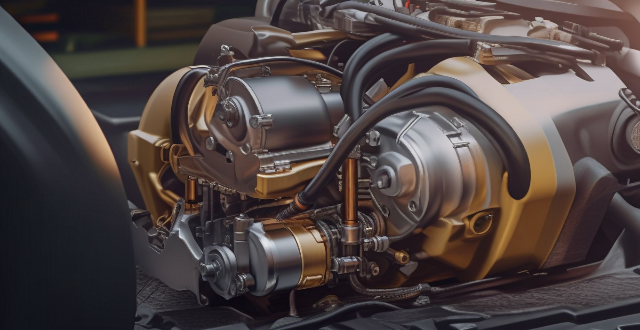The fuel pump in a car is responsible for transferring gasoline from the gas tank to the engine, where it is burned to produce energy. It pressurizes the fuel, filters out impurities, and maintains a consistent pressure level within the fuel lines. A well-functioning fuel pump improves fuel efficiency, performance, reliability, and safety. Signs of a failing fuel pump include engine stalling, reduced fuel efficiency, whining noises, and an illuminated check engine light. Regular maintenance and timely replacement of faulty fuel pumps are crucial for maintaining reliable vehicle operation and safe driving.

The Function of a Fuel Pump in a Car
A fuel pump is an essential component in a car's engine system. It plays a crucial role in delivering fuel from the gas tank to the engine, where it can be burned to produce energy and propel the vehicle forward. In this article, we will delve into the function of a fuel pump in a car and explore its importance in maintaining optimal engine performance.
Main Functions
The primary function of a fuel pump is to transfer fuel from the gas tank to the engine. This process involves several key steps:
1. Pumping Fuel: The fuel pump draws gasoline from the gas tank and pushes it through a series of pipes and filters towards the engine.
2. Pressurizing Fuel: As the fuel passes through the pump, it is pressurized to ensure that it reaches the engine with enough force to atomize properly when injected.
3. Filtering Impurities: The fuel pump also helps to filter out any contaminants or debris that may be present in the gasoline, preventing them from entering the engine and causing damage.
4. Maintaining Fuel Pressure: The fuel pump maintains a consistent pressure level within the fuel lines, ensuring that the engine receives a steady supply of gasoline at all times.
Importance of Fuel Pumps
Fuel pumps are critical components in modern vehicles for several reasons:
- Efficiency: A well-functioning fuel pump ensures that the engine receives the correct amount of gasoline, improving fuel efficiency and reducing emissions.
- Performance: Proper fuel delivery is essential for optimal engine performance, power, and acceleration. A failing fuel pump can lead to poor engine performance and reduced horsepower.
- Reliability: Fuel pumps are designed to last for many years, but they can fail due to wear and tear or contamination. Regular maintenance and replacement when necessary help maintain reliable vehicle operation.
- Safety: A malfunctioning fuel pump can cause engine stalling or failure, which can be dangerous while driving. Proper fuel pump function is crucial for safe vehicle operation.
Signs of a Failing Fuel Pump
If you suspect that your fuel pump may be failing, look out for these signs:
- Engine Stalling: If your engine frequently stalls or has difficulty starting, it could be due to a lack of sufficient fuel pressure from a failing fuel pump.
- Reduced Fuel Efficiency: A drop in fuel efficiency may indicate that your fuel pump is not delivering gasoline as effectively as it should.
- Whining Noises: If you hear unusual whining noises coming from the fuel tank area, it could be a sign that the fuel pump is struggling to operate correctly.
- Check Engine Light: A illuminated check engine light on your dashboard could indicate a problem with the fuel pump or other related components.
Conclusion
In conclusion, the fuel pump plays a vital role in delivering gasoline from the gas tank to the engine, ensuring efficient combustion and optimal engine performance. Regular maintenance and prompt replacement of faulty fuel pumps are essential for maintaining reliable vehicle operation and safety on the road.